Pakistan's transgenders mocked by most, abhorred by many
 - AP file photo
- AP file photoPESHAWAR:Â Abandoned by family and mocked by their society, the life of a Pakistani transgender is lonely.It can even be deadly.
Alisha was just 23 years old when she was shot five times last month, allegedly by a boyfriend who has since been arrested.
She died of her wounds three days later. Her friends say she was neglected by doctors and medical professionals who taunted her, rather than treated her, and that three hours passed before Alisha went into surgery after arriving at the hospital.
As she lay bleeding, the hospital's health workers crowded around her, making jokes and ridiculing her, said her friend Paro, herself transgender.
"I shouted: 'She is not dancing. She is dying. For God and the Prophet's sake leave her alone, let her breathe," Paro recalled, her voice rising as she remembered pushing the crowd away.
Farzana, another friend, said the hospital shuffled Alisha from ward to ward. First they sent her to the male ward, but the other patients and family members ordered her out.
She was shunted then to the female ward, but she wasn't welcome there either, said Farzana, who heads an organization devoted to fighting for the rights of transgender people in Pakistan's northwest.
As outcasts, Pakistan's transgender people are often forced into begging, dancing and even prostitution to earn money.
They also live in fear of attacks, causing most to either change their names or use only one name to give them anonymity in their society. Paro and Farzana have both changed their names, as had Alisha, abandoning their male names with their gender.
The Supreme Court has designated transgender people as a third gender, which under law should afford them protection but in practice, Kamran Arif, vice president of the independent Human Rights Commission of Pakistan, said transgender people bear the brunt of some of the worst discrimination. They are sexually abused, assaulted and even murdered.
He said Pakistan has become increasingly intolerant.
So far this year in northwestern Pakistan alone, there have been five attacks against transgender people. According to members of the community, 45 have been killed in the last two years in the northwest province of Khyber Pukhtunkhwa, of which Peshawar is the capital.
"I am very scared about being publicly visible," says Mani, another transgender, who rarely mixes with anyone but close friends who are either supporters or transgender themselves.
Mani tells of growing up as a girl in Punjab, never feeling in his heart like a girl. He would dress and act as a boy.
He avoided family weddings so he wouldn't have to dress in fancy clothes, and strapped his chest, desperate to hide any evidence that he was a girl.
One day he saw a program on television about a sex change operation. He was surprised. He never thought it possible and blurted out in front of his family: "I will change my sex too when I have enough money."
His mother scolded Mani, telling him that the body assigned by God was unchangeable. He left home. Everyone but his mother has stopped speaking to him "but still she doesn't support my transition," he told The Associated Press.
Now 31, Mani is saving money and crowd funding on Facebook to raise $5,000, the cost of a double mastectomy in Pakistan. He has begun the long and potentially dangerous journey to becoming a man ? the medicines, endless rounds of blood tests, and regular visits to a psychiatrist.
Mani freely discusses the emotional road he has travelled since childhood. But he is reluctant to say anything that will identify him ? fearful, he told the AP, of violent attacks by militants who revile transgender people as against their version of the tenets of Islam. He uses only the name Mani.
"In Pakistan, very few people are aware that there are transgender men as well, not only transgender women, so people consider us like tom-boy girls," said Mani.
While that might afford some safety in a child's early years, Mani says a woman trying to live as a man in Pakistani society is vulnerable to violence because "the men of the society will not tolerate a woman who behaves and acts like a man."
Sitting in a small cement box of a room at the top of steep gray cement stairs, Paro wipes the sweat from her face, taking with it her carefully applied make-up. Her hair is long and pulled back from her face.
The home she lives in with Farzana is protected by a camera that pokes out from over the outside door, which is bolted from within. Located in Peshawar's old city, it is hidden in the back of a sewer lined street.
Paro and Farzana mourn Alisha, and seek justice for her death. The hospital has ordered an inquiry; the hospital administrator, a retired army colonel named Dr. Hamid Saeed Haq, promised to punish the culprits, acknowledging in an interview that it seems mistakes were made. But he neither identified the mistakes nor assigned blame.
"The whole society was responsible for her death," said Farzana.
In recent years and in several areas of the country, transgender people have begun to organize, occasionally demonstrating despite violent responses. Paro and Farzana both want to be recognized as women but say that's not possible in Pakistan.
"In the outside world we are called she-men because no one will ever call us female," said Farzana.
It is no small matter, she said. "The basic thing that matters," she said, "is our soul."


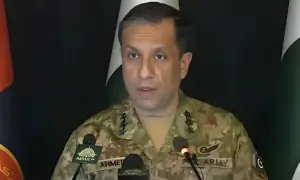
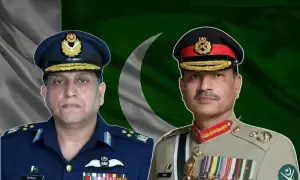
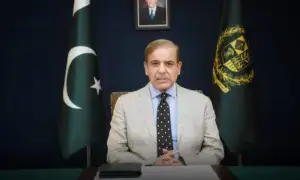

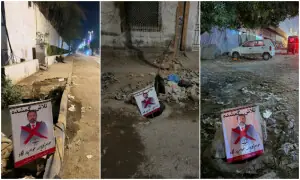
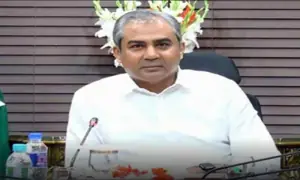

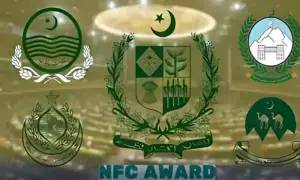
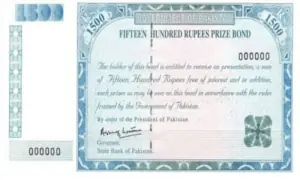



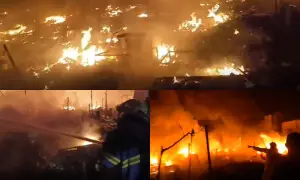

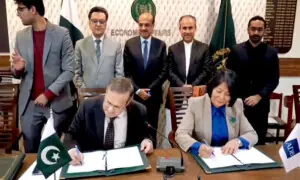
Comments are closed on this story.